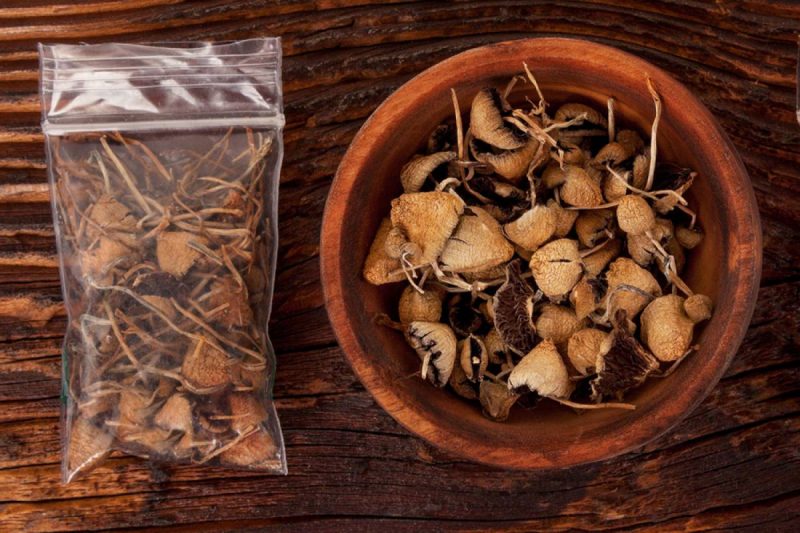Magic mushrooms are mushrooms that comprise psilocybin which is a hallucinogenic chemical compound. They are used as recreational drugs that are associated with feelings of exhilaration and perceptual distortion that are a dominant feature in drugs with hallucinogenic effects. The following are some of the street names commonly used to refer to them; shrooms, zoomers, boomers, mushies, simple Simon, little smoke, purple passion, cubes, mushroom soup, sacred mushrooms etc. Magic mushrooms mental health uses has seen researchers carry out a lot of investigative reports to prove their effectiveness.
Consumption
Serotonin receptors in the prefrontal cortex are activated by psilocybin to function. The prefrontal cortex is the part of the brain that affects cognition, perception and mood. Other than the prefrontal cortex, psilocybin also works in other parts of the brain that control intoxication and overwhelming responses. It is consumed through mixing with drinks like brewed tea with magic honey or food items to kill the bitter taste, or can also be crushed in powder form and produced as capsules. It can also be consumed by mixing with cannabis or tobacco and then smoked.
Side Effects
The effects of psilocybin occur within thirty minutes and last between four to six hours. There are various side effects associated with magic mushrooms mental health uses. They include the following; derealization that is feelings the surroundings are unreal, depersonalization that is a fantasy-like sense associated with being detached from the environment, unclear thinking, visual impairment experienced by sighting light halos and graphic colours, muscle weaknesses, lack of uniformity, abnormal body sensations, impaired concentration, dilated pupils, drowsiness, dizziness, yawning, nausea, vomiting, euphoria, delusions, uncertainty, scary hallucinations, intense changes in moods and feelings among many more.
Depression Treatment
Research projects have been conducted to verify magic mushrooms mental health uses. They sought to find out whether psilocybin can be used as a depression treatment. One of the studies investigated the ability of psilocybin to reduce depression symptoms without diminishing emotions. The study proved successful but it would require psychological support to be effective. A second study experimented with the co-existence between hallucinations caused by psilocybin and positive remedial results. Another study proved that self-medicating people taking psilocybin in small dosages were able to relieve cluster headaches while avoiding the psychoactive effects of the drug. All these studies indicate a certain percentage of the effectiveness of magic mushrooms mental health uses.
In conclusion, magic mushrooms mental health uses can be successfully effective but would require a lot of psychological intervention. This is because self-medicating can sometimes be addictive, or result in adverse effects than was expected. Some individuals using psilocybin might experience psychological withdrawal or difficulty adjusting to reality. With the help of qualified personnel, it is possible to stay in check and get positive feedback.
